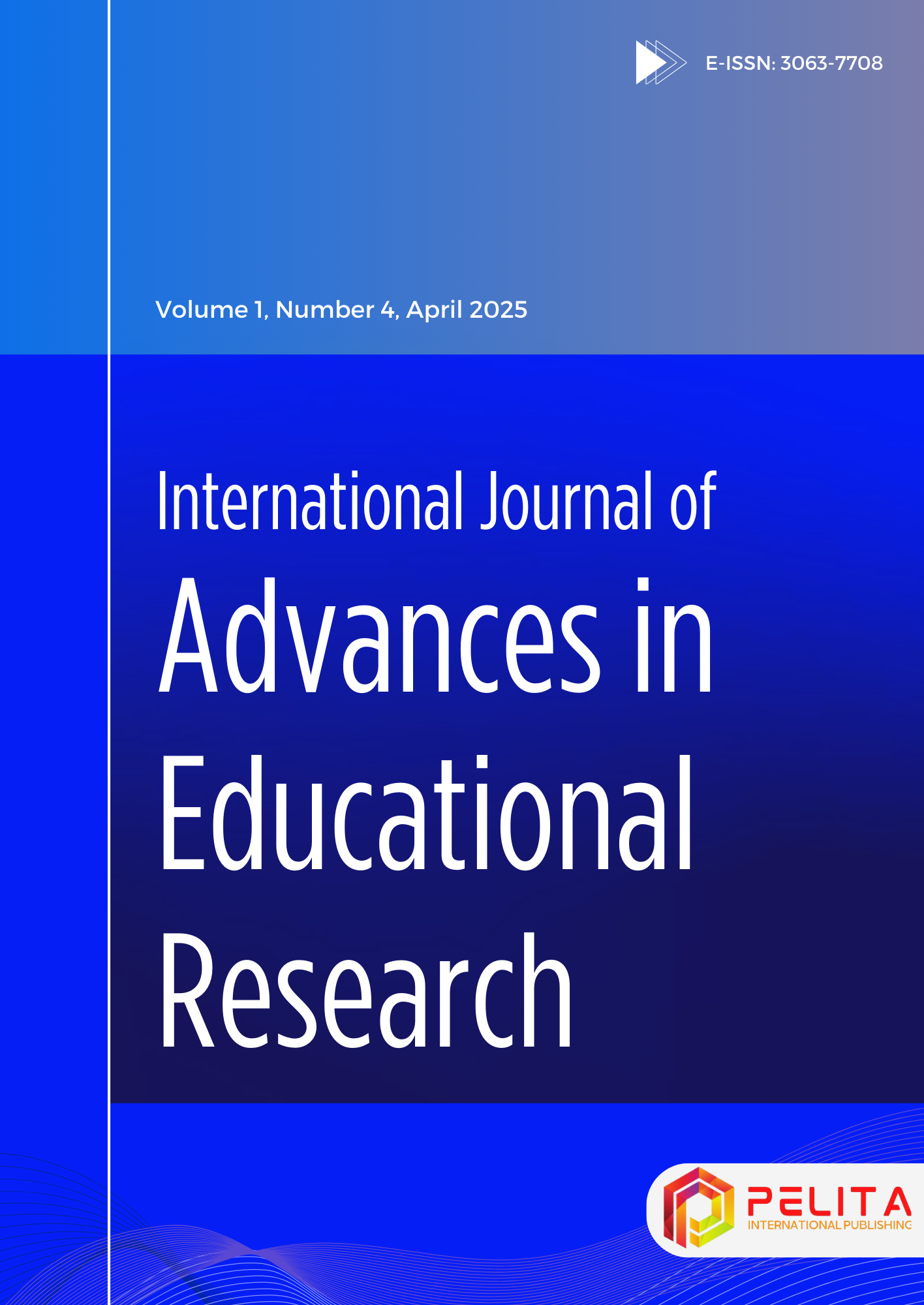Family economic education as a strategy to mitigate the negative impact of online loan fintech in Sukosari Village, Lumajang Regency
Main Article Content
Fidyah Jayatri
Dwi Yanuarindah Putri
Sri Wahyuni Wildad
The rapid development of financial technology in today's digital era has brought significant changes to Indonesian society, including residents of Sukosari Village, Kunir Sub-district, Lumajang Regency, in how they conduct financial transactions. However, a lack of financial literacy has led to increasingly harmful consequences over time. This study aims to analyze how family-based economic education can be implemented to counteract the negative impacts of financial technology. This qualitative research employs a phenomenological approach, with 25 local residents as informants. The findings reveal that impulsive use of online loan fintech is driven by curiosity, the urge to experiment, and the appeal of convenient technology in meeting both needs and wants. Awareness of the risks typically arises only after the negative consequences have become significant. Family economic education plays a crucial role in curbing excessive use of online loan applications by fostering financial discipline through modeling and daily financial habits. However, this education can be undermined by internal individual factors, such as strong curiosity and a tendency to experiment without sufficient economic understanding.
Arner, D.W., Barberis, J., & Buckley, R.P. (2016). The Evolution of FinTech: A New Post-Crisis Paradigm. Georgetown Journal of International Law, 47(4), 1271–1320. https://dx.doi.org/10.2139/ssrn.2676553
Arner, D. W., Barberis, J., & Buckley, R. P. (2016). FinTech, RegTech, and the Reconceptualization of Financial Regulation . Northwestern Journal of International Law and Business, 37(3), 373–415. https://ssrn.com/abstract=2847806
Bank Indonesia. (2020). FinTech and Digital Banking 2020: Innovation, Regulation, and Impact. Jakarta: Bank Indonesia.
Gomber, P., Kauffman, R. J., Parker, C., & Weber, B. W. (2018). On the FinTech Revolution: Interpreting the Forces of Innovation, Disruption, and Transformation in Financial Services . Journal of Management Information Systems, 35(1), 220–265. https://doi.org/10.1080/07421222.2018.1440766
Gruber, M. J., Gelman, B. D., & Ranganath, C. (2014). States of curiosity modulate hippocampus-dependent learning via the dopaminergic circuit. Neuron , 84(2), 486-496. https://doi.org/10.1016/j.neuron.2014.08.060
Narmaditya, B. S. Narmaditya, B. S. (2013). Pengaruh Pendidikan Ekonomi Keluarga Terhadap Perilaku Konsumsi Dimediasi Literasi Ekonomi dan Gaya Hidup Pada Mahasiswa Fakultas Ekonomi Universitas Negeri Malang Angkatan 2011. Ekuitas: Jurnal Pendidikan Ekonomi, 1(1), 11-20. https://doi.org/10.23887/ekuitas.v1i1.12757
Novitasari, A.T., & Septiana, A. (2021). Pengaruh Pendidikan Ekonomi dalam lingkungan keluarga terhadap perilaku konsumtif siswa. JEKPEND: Jurnal Ekonomi dan Pendidikan, 4(1), 64-73. https://doi.org/10.26858/jekpend.v4i1.15119
Pandey, C., & Bhattacharya, S. B. (2012). Economic literacy of senior secondary school teachers: a field study. Journal of All India Association for Educational Research, 24(1).
Qolbi, S. K., & Sutrisno, S. (2021). Manajemen Skala Prioritas Kehidupan Manusia dalam Perspektif Agama Islam. NUKHBATUL ’ULUM: Jurnal Bidang Kajian Islam, 7(2), 197-210. https://doi.org/10.36701/nukhbah.v7i2.357
Rahmatullah, R., Inanna, I., & Ampa, A. (2020). How Informal Education Fosters Economic Awareness in Children. Dinamika Pendidikan, 15 (2), 202-214. doi: https://doi.org/10.15294/dp.v15i2.25285
Rambe, K. F. (2024). The Importance of Economic Education in Preparing the Young Generation to Face Global Economic Challenges. Benefits: Journal of Business, Economics, and Finance, 2 (2), 21–29. https://doi.org/10.70437/benefit.v2i2.395
Risnawati, R., Mintari W, S., & Wardoyo, C. (2018). Pengaruh pendidikan ekonomi keluarga, gaya hidup, modernitas individu, dan literasi ekonomi terhadap perilaku konsumtif siswa. Jurnal Pendidikan:Teori, Penelitian, dan Pengembangan, 3(4), 430-436.
Stern, Gary. H. (1998). Do We Know Enough About Economics? Minneapolis: Federal Reserve Bank of Minneapolis https://www.minneapolisfed.org/article/1998/do-we-know-enough-about-economics
Winarta, S., Natalia, I., & Sulistiawan, D. (2021). Manajemen laba, tata kelola dan nilai perusahaan. Jurnal Bisnis dan Akuntansi, 23(1), 133-144. https://doi.org/10.34208/jba.v23i1.897
Yanti, S., Matsum, J. H., & Asriati, N. (2014). Pengaruh penguasaan konsep ekonomi dan status sosial ekonomi orangtua terhadap pola perilaku konsumsi siswa. Jurnal Pendidikan dan Pembelajaran Khatulistiwa, 3(12, 1-15). https://doi.org/10.26418/jppk.v3i12.8168
Yasmin, F., Kouser, R., e Hassan, I., Ahmad, W. (2014). Determinants of Economic Literacy at University Level: A Case of Pakistan. Pakistan Journal of Commerce and Social Sciences, 8(3), 914-924. https://hdl.handle.net/10419/188177
Yunita Sirait, S., & Moody Manalu, H. (2024). Pengaruh Literasi Keuangan dan Financial Technology terhadap Minat Menabung Mahasiswa. Jurnal Akademi Akuntansi Indonesia Padang, 4(2), 187-195. https://doi.org/10.31933/d1ancz28









